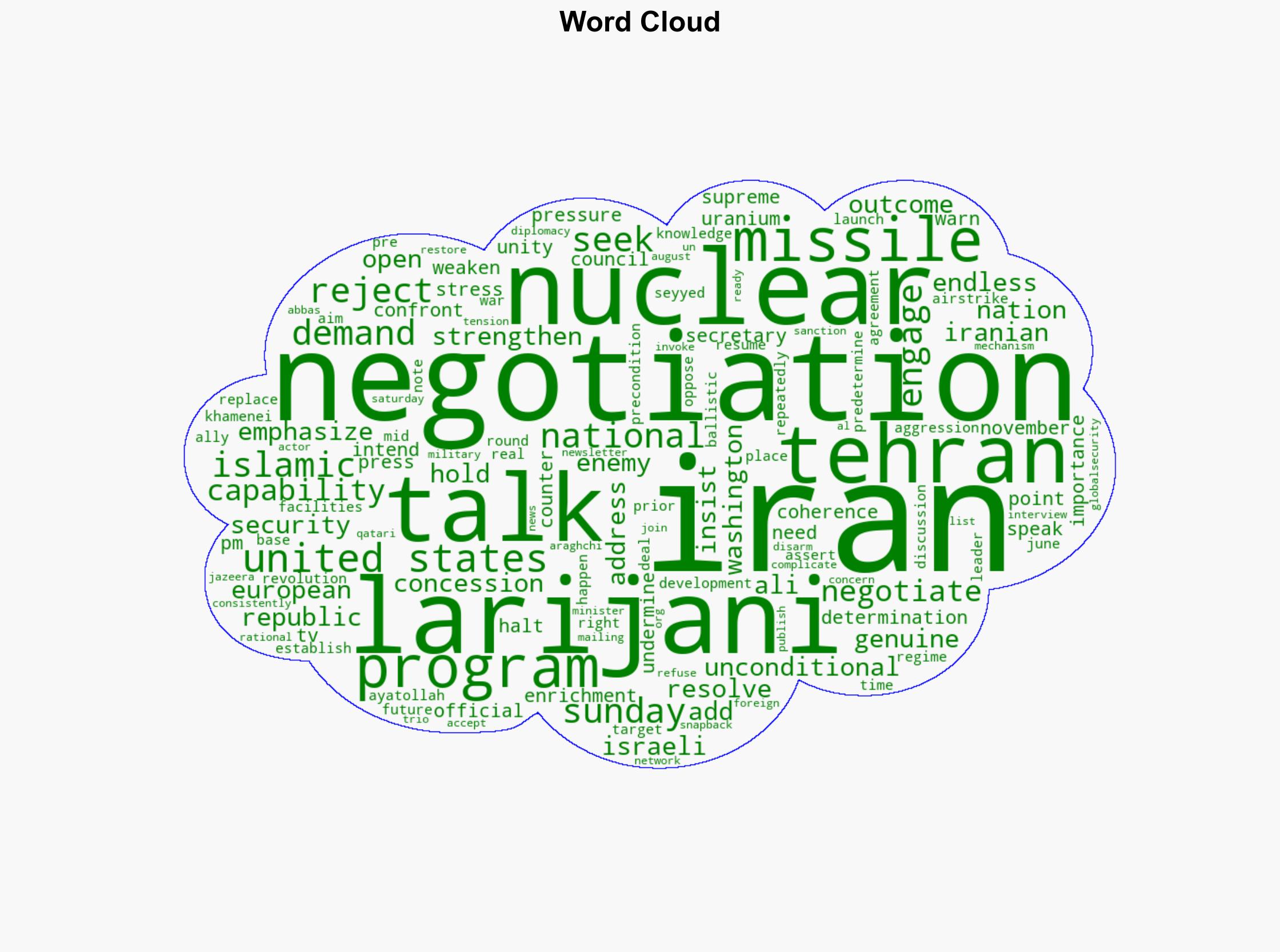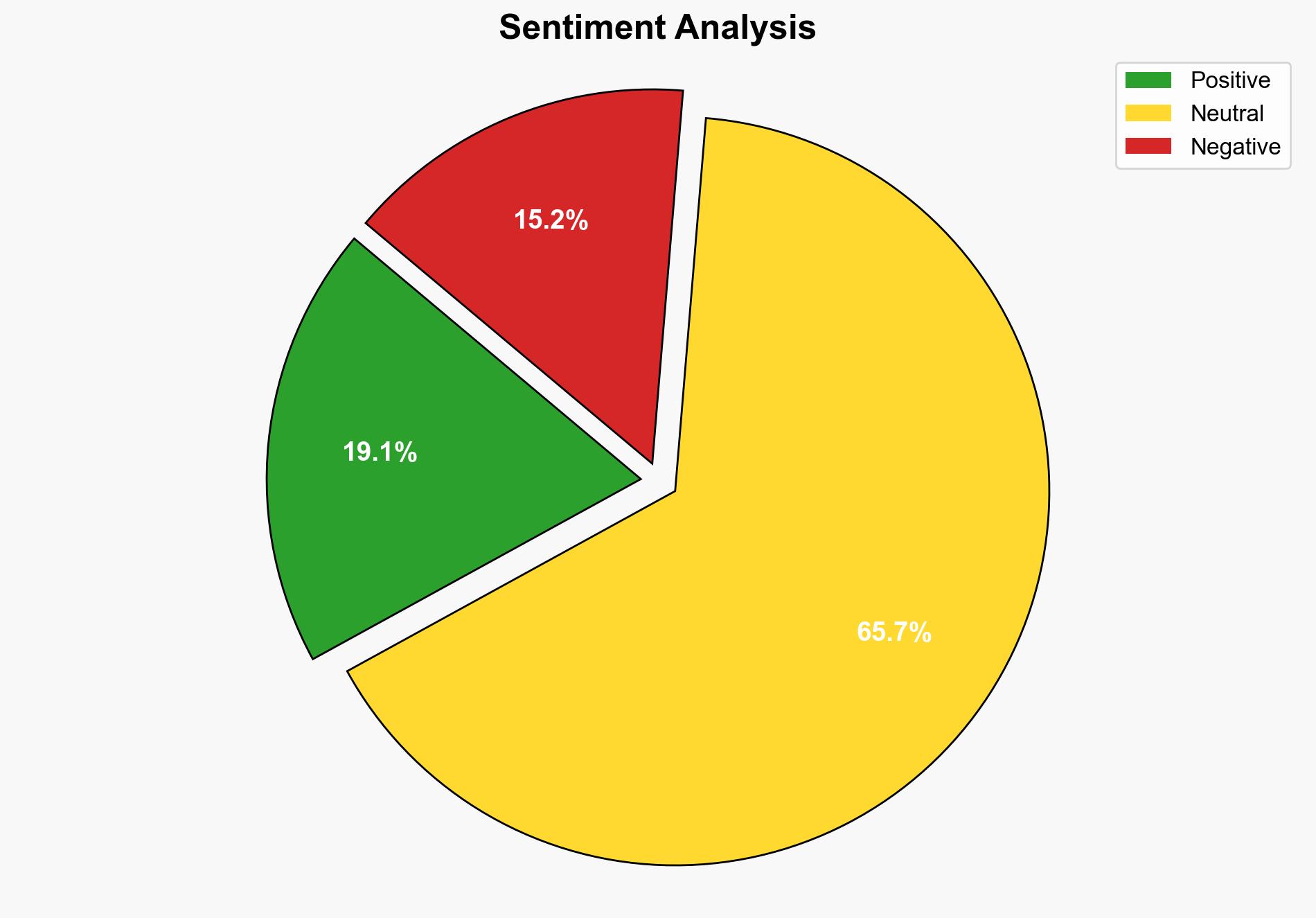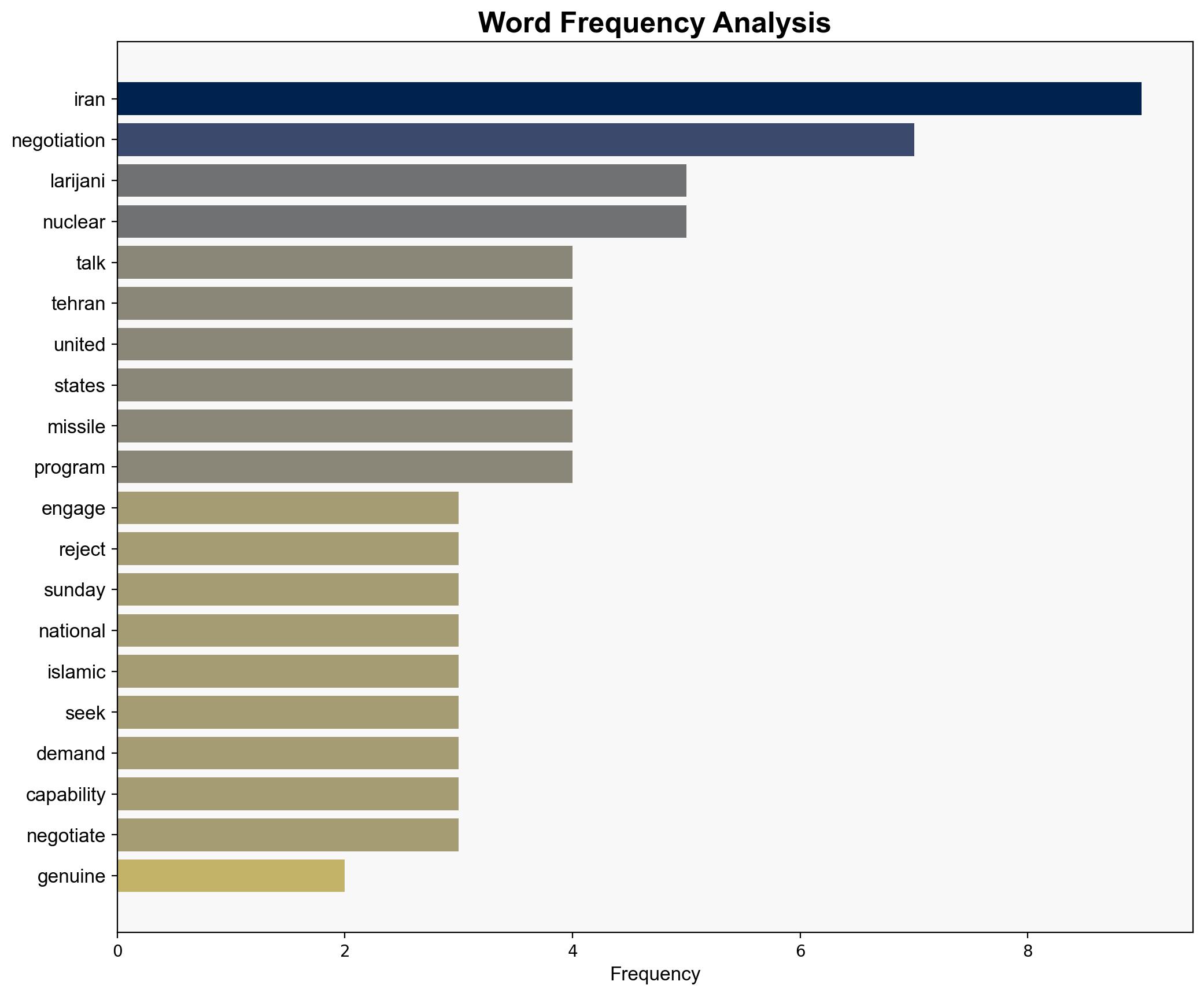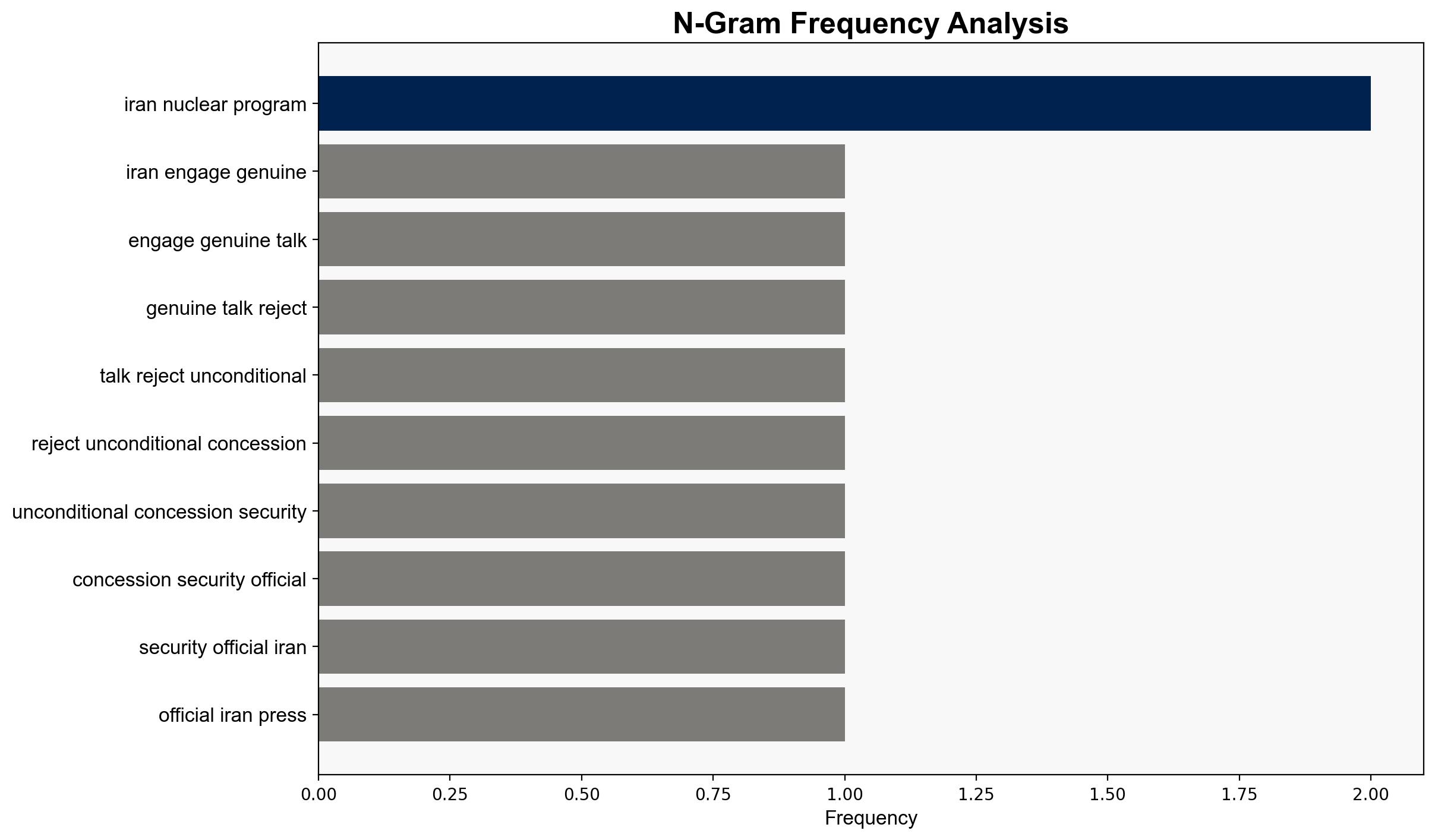Iran will engage in ‘genuine’ talks rejects ‘unconditional concessions’ Top security official – Globalsecurity.org
Published on: 2025-11-03
Intelligence Report: Iran will engage in ‘genuine’ talks rejects ‘unconditional concessions’ Top security official – Globalsecurity.org
1. BLUF (Bottom Line Up Front)
Iran’s stance on negotiations with the United States is characterized by a rejection of preconditions, particularly concerning its missile program. The most supported hypothesis is that Iran seeks to maintain its strategic capabilities while engaging in talks to alleviate international pressure. Confidence level: Moderate. Recommended action: Engage in multilateral diplomacy to explore potential areas of compromise without demanding preconditions.
2. Competing Hypotheses
1. **Hypothesis A**: Iran is genuinely interested in negotiations to reach a new agreement that addresses international concerns while preserving its strategic interests. This hypothesis suggests Iran aims to alleviate economic sanctions and international isolation through diplomacy.
2. **Hypothesis B**: Iran’s engagement in talks is primarily a strategic maneuver to buy time and reduce international pressure without any intention of making significant concessions, particularly regarding its missile program and uranium enrichment.
Using the Analysis of Competing Hypotheses (ACH) 2.0, Hypothesis A is better supported by Iran’s public statements emphasizing genuine negotiations and the need for national unity. However, Hypothesis B remains plausible due to Iran’s consistent rejection of preconditions and historical patterns of negotiation.
3. Key Assumptions and Red Flags
– **Assumptions**: It is assumed that Iran’s public statements reflect its true intentions. There is also an assumption that external pressures, such as sanctions, are significant enough to drive Iran to negotiate.
– **Red Flags**: The lack of clarity on what constitutes “genuine” negotiations and the absence of specific concessions Iran is willing to consider. Historical patterns of Iran’s negotiation tactics suggest potential deception.
4. Implications and Strategic Risks
– **Geopolitical**: Continued tension between Iran and the U.S. could escalate, particularly if preconditions are enforced. This may lead to increased regional instability.
– **Economic**: Prolonged sanctions could further strain Iran’s economy, potentially leading to domestic unrest.
– **Military**: Potential for military escalation if negotiations fail and preconditions are enforced, particularly concerning Iran’s missile program.
– **Psychological**: National unity rhetoric may bolster domestic support for the regime but could also entrench hardline positions.
5. Recommendations and Outlook
- Engage in multilateral diplomacy involving European allies to explore potential compromises without preconditions.
- Monitor Iran’s domestic economic indicators for signs of increased pressure that may influence negotiation stances.
- Scenario Projections:
- Best Case: Successful negotiations leading to a new agreement that addresses nuclear and missile concerns.
- Worst Case: Breakdown of talks leading to military escalation and increased regional instability.
- Most Likely: Protracted negotiations with intermittent progress and setbacks.
6. Key Individuals and Entities
– Ali Larijani
– Ayatollah Seyyed Ali Khamenei
– Abbas Araghchi
7. Thematic Tags
national security threats, geopolitical negotiations, regional stability, strategic capabilities




